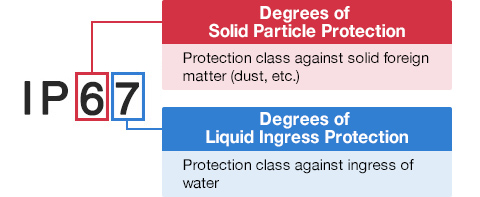Intuitive Touch Screen Interface

The innovative touch screen interface provides quick and smooth operation for setting and editing various functions and memories.
One Touch Selection
For example, if you want to change the operating band, tap the frequency on the display. The band keys will be shown to select the operating band. Touching the multi-function meter indicator for 1 second will quickly change the transmit meter functions.
Straight Forward Operation

Just tap the mode, filter, function etc, you need to change. The touch screen responds naturally, changing your settings.
Software Keypad
Entering frequency, callsign or editing memory channels has never been this easy. The software keypad on the touch screen allows you to input alphanumeric characters incredibly quickly.
Touch Screen Control Portal
The radio control head features a large, multi-function, "touch screen" dot-matrix LCD display that is positioned for easy view and operation. The controller is compact in size, making it ideal for limited vehicle or desktop space.

Resistive Touch Screen

The 48.6×75.9 mm; 1.91×2.99 in large resistive touch screen display can be operated while wearing gloves.
Controller Mounted Speaker and Jacks
The unique remote head design is perfect for providing loud, clear audio as well as jacks for an external speaker/headphones as well as a key and microphone.


HF/50/144/430/440MHz Multi-band, Multi-mode
The IC-7100 fully covers the HF, 50, 144, 430/440 MHz amateur bands in multiple modes, providing 100W on HF/50MHz bands, 50W on 144MHz band and 35W on 430/440MHz band.
Digital Features Controlled by the IF DSP

32-bit floating point IF DSP
A high-performance 32-bit floating point IF DSP delivers rich digital signal processing features, including digital IF filter, digital twin PBT, noise reduction, CW auto tune, etc. Those digital features work on all bands from HF to V/UHF bands
DSP Controlled AGC Function Loop
The digital signal processing is incorporated into the AGC function loop. The results of signal processing provide feedback to the AGC function. The AGC function works on the intended signal and produces a constant audio output. The AGC time constants are flexibly adjustable from slow, middle, fast (or AGC off) for each operating mode.

AGC function loop
D-STAR DV Mode (Digital Voice + Data)
The IC-7100 provides D-STAR DV mode digital voice and low speed data communication.Find the D-STAR system introduction and features from here.
DR (D-STAR Repeater) Mode Operation

DR mode display
The DR mode operation makes the D-STAR operation simple and straight forward, even if you are new to D-STAR operation.
Near Repeater Function

DR mode display
With an external, 3rd party GPS*, search the internal database based on your location.
* External GPS receiver or manual data input required.
SD Memory Card Slot for Saving Data

SD memory card slot
When used with an SD card, the SD card can store various contents including voice memory, memory channels, D-STAR repeater memories and other personal settings can be saved to the SD card and can be loaded to the transceiver.
Easy Vehicle Mounting with Optional MBF-1
The combination of the optional MBF-1 suction cup mounting base and MBA-1 controller bracket provides easy tilt and swivel adjustments for mobile operation. The large suction cup can mount to dashboards or other flat surfaces and can be removed easily.

Optional RS-BA1 IP Remote Control Software

The optional RS-BA1 software allows you to operate the IC-7100 from a remote PC over the Internet or local home network.
RS-BA1

Built-in RTTY Functions
The built-in RTTY decoder allows you to instantly read an RTTY message on the display. No external TNC or PC required for reading. The eight RTTY memories can memorize and transmit often used RTTY sentences. The RTTY memory is 70 character per memory channel.
RS-MS1A, Free Download Android™ Application
The RS-MS1A allows you to connect your Android™ device to the IC-7100*. Text messages and pictures can be sent and received with your Android™ device through D-STAR DV mode.
* The optional OPC-2350LU data cable is required to connect to an Android™ device.
Other Features
- CW full break-in, CW receive reverse, CW auto tuning
- Optional multi-function microphone, HM-151
- Band scope and SWR graphic display
- RF speech compressor controlled by the DSP
- Voice memory function
- Multi-function Meter
- 495 regular, 4 call, 6 scan edge and 900 DR mode repeater channels
- 4 channels TX voice memories
- ±0.5ppm frequency stability
- Auto reply function*
- Digital callsign squelch and digital code squelch*
- 12.5kHz IF output for DRM (Digital Radio Mondiale) receive
* D-STAR DV mode only
Rear Panel View (Main unit)

General
| Frequency coverage*1 | Receiver: | 0.030–199.999MHz*2 400.000–470.000MHz*2 |
|---|---|---|
| Transmit | 1.800–1.999MHz 3.500–3.999MHz 5.255–5.405MHz*2 7.000–7.300MHz 10.100–10.150MHz 14.000–14.350MHz 18.068–18.168MHz 21.000–21.450MHz 24.890–24.990MHz 28.000–29.700MHz 50.000–54.000MHz 144.000–148.000MHz 430.000–450.000MHz |
|
| Mode | USB, LSB, CW, RTTY, AM, DV, FM, WFM(Rx only) |
|
| No of memory channels | 495 regular, 4 call, 6 scan edges, 900 D-STAR repeater channels |
|
| Antenna connector | SO-239×2 (one each for HF/50MHz and 144/430/440MHz, 50Ω) |
|
| Operating Temp. range | −10°C to +60°C; +14°F to +140°F |
|
| Frequency stability | ±0.5ppm (0°C to +50°C @ 430MHz) |
|
| Power supply requirement | 13.8V DC ±15% | |
| Current drain (at 13.8V DC) |
Tx | 22A (HF/50MHz) 16A (144/440MHz) |
| RX | 1.2A/0.9A (Max. audio/standby) | |
| Dimensions (W×H×D, projections not included) |
Main unit |
167×58×225 mm; 6.57×2.28×8.86 in |
| Controller | 165×64×78.5 mm; 6.5×2.52×3.09 in |
|
| Weight (approx.) |
Main unit | 2.3 kg; 5.1 lb |
| Controller |
0.5 kg; 1.1 lb |
|
*1 Showing the USA version. Varies depending on the version.
*2 Some frequency bands are not guaranteed.
Transmitter
| Output power (at 13.8V DC) |
SSB/CW/RTTY/FM/DV |
HF/50MHz: 2–100W 144MHz: 2–50W 430/440MHz: 2–35W |
|---|---|---|
| AM | HF/50MHz: 1–30W | |
| Modulation system | SSB | Digital P.S.N. modulation |
| AM | Digital low power modulation | |
| FM | Digital phase modulation | |
| DV | GMSK digital phase modulation | |
| Spurious emissions | Less than −50dB (HF bands) Less than −63dB (50MHz) Less than −60dB (144/430/440MHz) |
|
| Carrier suppression | More than 50dB | |
| Unwanted sideband | More than 50dB | |
Receiver
| Intermediate frequencies | SSB/CW/AM/FM/RTTY/DV: | 124.487MHz, 455kHz, 36kHz |
|---|---|---|
| WFM | 134.732MHz, 10.700MHz | |
| Sensitivity (HF: Preamp-1 ON, 50MHz: Preamp-2 ON, 144/430/440MHz: Preamp ON) |
||
| SSB/CW (BW=2.4kHz at 10dB S/N) | 1.8–29.9MHz: 0.15μV 50–54MHz: 0.12μV 144/430/440MHz: 0.11μV |
|
| AM (BW=6kHz at 10dB S/N) | 0.5–1.8MHz: 13μV 1.8–29.9MHz: 2μV 50–54MHz: 1μV 144/430/440MHz: 1μV |
|
| FM (BW=15kHz at 12dB SINAD) | 28–29.7MHz: 0.5μV 50–54MHz: 0.25μV 144/430/440MHz: 0.18μV |
|
| DV (at 1% BER) | 28–29.7MHz: 1μV 50–54MHz: 0.63μV 144/430/440MHz: 0.35μV |
|
| WFM (at 12dB SINAD): | 76–108MHz: 10μV | |
| Selectivity | SSB (BW=2.4kHz, sharp) |
More than 2.4kHz / −6dB Less than 3.4kHz / −40dB |
| CW (BW=500Hz, sharp) | More than 500Hz / −6dB Less than 700Hz / −40dB |
|
| RTTY (BW=500Hz) |
More than 500Hz / −6dB Less than 800Hz / −40dB |
|
| AM (BW=6kHz) |
More than 6.0kHz / −6dB Less than 10kHz / −40dB |
|
| FM (BW=15kHz) | More than 12kHz / −6dB Less than 22kHz / −40dB |
|
| DV (12.5kHz spacing) | More than −50dB | |
| Spurious and image rejection ratio | More than 70dB (HF/50MHz) More than 65dB (144/430/440MHz) (except 1/2 IF through on 50MHz, IF through on 144MHz) |
|
| Audio output power | More than 2.0W (10% distortion, 8Ω load, 13.8V DC) |
|
All stated specifications are subject to change without notice or obligation.
Supplied Accessories
- Hand microphone, HM-198
- DC power cable
- CW keyer plug
- Spare fuses
- Separation cable, OPC-2253
- 13-pin plug ACC cable
- USB cable
- Ferrite bead*
* May differ depending on the version
MICROPHONES
EXTERNAL SPEAKERS
CONTROL CABLES
MOUNTING BRACKETS
ANTENNA TUNERS
SOFTWARE
PROGRAMMING/DATA CABLES
POWER AMPLIFIERS
EXTERNAL DEVICES
ADAPTER CABLES
News
Catalogs / Brochures
| Brochures Name | Size |
|---|---|
| IC-7100(USA) | 1.23MB |
| HAM Radios and Receivers | 3.28MB |
Instruction Manual / Guides
| Name | Model Name | Note |
|---|---|---|
| Update information (Revision 1.10) | CS-7100 Cloning Software | |
| DICHIARAZIONE DI CONFORMITA UE (ITALIANO) | IC-7100 | |
| DOC (DECLARATION OF CONFORMITY) | IC-7100 | |
| Full Manual | IC-7100 | |
| Basic Manual | IC-7100 | |
| Firmware information: Release E4 | IC-7100 | |
| Firmware update instructions | IC-7100 | |
| Tips for the USB port settings | IC-7100/IC-7300/IC-7610/IC-7850/IC-7851/IC-9100 | |
| D-STAR Application Guide | ID-52A PLUS/ID-52E PLUS/ID-52A/ID-52E/IC-705/IC-905/IC-9700/IC-7100/ID-4100E/ID-4100A/ID-5100E/ID-5100A/ID-51E/ID-51A/ID-31E/ID-31A/ID-31E PLUS/ID-31A PLUS/RS-MS1A/RS-MS1I/RS-MS3A/ST-4001A/ST-4001I/ID-50A/ID-50E | |
| D-STAR Updating the repeater list | ID-52A PLUS/ID-52E PLUS/ID-52E/ID-52A/IC-705/IC-905/IC-9700/IC-7100/ID-4100E/ID-4100A/ID-5100E/ID-5100A/ID-51E/ID-51A/ID-31E/ID-31A/ID-31E PLUS/ID-31A PLUS/ID-50A/ID-50E | |
| INSTRUCTIONS | ST-4002A | |
| INSTRUCTIONS | ST-4003A | |
| INSTRUCTIONS | ST-4003W | |
| Installation Guide for Windows 11/10/8.1 USB3.0 Supported | USB Driver (Ver.1.30) CS-7100/CS-9100/CS-9700/CS-R8600/IC-7300/RS-BA1/RS-R8600 |
Firmware / Software
| Type | Model Name | Version | Last Update |
|---|---|---|---|
| Cloning software | CS-7100 | Revision 1.11 | 2022.03.24 |
| Firmware | IC-7100 | Release E6 | 2024.12.06 |
| Setting data file (Original Repeater list) | IC-7100 | 20130615 | 2016.01.26 |
| USB Driver | IC-7100/IC-7200/IC-7300/IC-7410/IC-7600/IC-7610/IC-7850/IC-7851/IC-9100/IC-9700/IC-R8600 | Version 1.30 | 2018.06.07 |
| USB Driver | IC-7100/IC-7200/IC-7410/IC-7600/IC-9100 | Ver.1.10 | 2018.06.07 |
| Firmware | IC-PW2 | Version 1.31 | 2025.08.13 |
| Control software | RS-BA1 Version 2 | Version 2.80 | 2025.11.13 |
| Time adjustment software | ST-4003W | Version 1.00 | 2021.11.30 |
Ingress Protection (IP) Code
Ingress Protection (IP) ratings define the level of protection provided by enclosures to prevent the ingress of foreign objects (dust) and liquid into the electrical equipment.
International Standard IEC 60529 outlines an international classification system that describes the sealing characteristics of electrical equipment.
The classification system uses the “IP” code, or “Ingress Protection” code, to define the level of seal.
An IP number contains two numbers (i.e. IP67) in most instances which relate to the level of protection provided by an enclosure or housing.
Either number may be shown as “X” (i.e. IPX6 / IP7X) to indicate the “X” part is not tested.


Degrees of Solid Particle Protection – 1st Digit
| IP6x | No ingress of dust; complete protection against contact. (Dust tight) |
|---|---|
| IP5x | Protected from the amount of dust that would interfere with normal operation. (Dust protected) |
Degrees of Liquid Ingress Protection – 2nd Digit
| IPx8 | Protected against continuous immersion in water. Depth and duration specified by model. |
|---|---|
| IPx7 | Protected against temporary immersion in water for 1 m (3.3 ft) for 30 minutes |
| IPx6 | Protected against water projected by powerful jets from any direction. 100 L per minute by a powerful jets (12.5 mm) for 3 minutes. |
| IPx5 | Protected against water projected by jets from any direction. 12.5 L per minute by a nozzle (6.3 mm) for 3 minutes. |
| IPx4 | Protected against water splashed against the equipment from any direction |









































